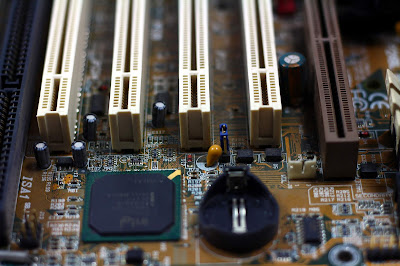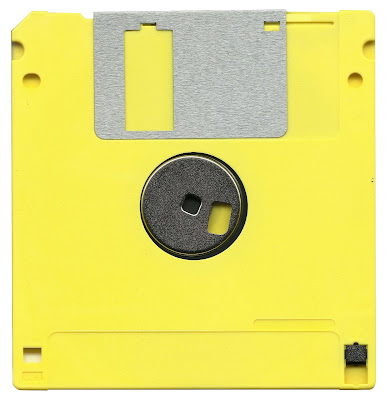How to Fix a Slow Laptop or Computer In Minutes?
It may be possible that one day you
just press the "power button" and your laptop starts to behave weirdly. It
doesn't boot up like a regular routine and starts hanging in standard processing.
It's time to know how to fix a slow laptop or computer during the
lockdown on your own.
There are many
reasons for slow booting or processing of your laptop, and most of the time, it
happens due to the accumulation of backlog of unnecessary files on your computer.
Consequently, the processing of a laptop gets slower, making it uncomfortable to
complete routine tasks on the computer or laptop. The laptop shows slow response due to excessive
downloading of pirated software, and virus-infected files can create problems
for laptops, and its processing speed decreases gradually.
We are going to
share simple ways to fix a slow laptop or computer at home in just minutes.
 |
| How to Fix a Slow Laptop |
Steps to Fix a Slow Laptop or Computer
Step 1 – Uninstall Unwanted Programs
If you are working
on a laptop or computer for quite a long time and running a massive load on your
computer, then there are chances that your PC gets chocked with huge memory
cache related to files which you use occasionally. These programs take a considerable share of memory and slow down processing on your laptop or PC.
It is advised to
remove or uninstall unwanted programs from "Control Panel" and free up
your laptop memory, otherwise, they keep running in the background.
If you are not sure
which program should stay or be removed, then the "PC Decrapifier" is a
free application to help you deciding which programs should be removed or
retained.
 |
| Control Panel |
Click Programs - Uninstall a program.
 |
| Uninstall a program |
Step 2 – Remove Temporary Files
You spend a lot
of time on a laptop or computer browsing the internet, generating documents,
and downloading files from the internet. So, the system stores a large number
of files on the history. The same happens with the laptop or computer.
To remove temporary
files on your laptop or computer, just check the "My Computer" icon on your
desktop, open up the main driver, i.e., "C-Drive" in most of the systems. Now,
open the "Windows" folder, then find the "Temp" folder and open it. Now, select
all files and delete them from the folder.
 |
| Click the "Computer" icon. |
 |
| Delete files from the "Temp" folder. |
Step 3 – Change System Configuration Settings
You can change
your system's configuration settings by clicking on the "Start" button of your
Windows, then type "MSConfig." Now, you can click the "Startup Program" button
and disable all those which you don't need on your laptop or computer. After
doing this, reboot your PC or notebook, and your computer will start and process in a better way, which will also increase the processing speed.
 |
| "MSCONFIG" |
Then remove the unnecessary programs from the "Startup" tab. This is how to fix a slow laptop issue.
 |
| Startup |
Step 4 – Free Up Resources with "Disk Cleanup"
The "Disk
Clean" program can be started from Start Menu by merely typing "disk
cleanup" and Disk Cleanup Utility will pop-up on your desktop screen. You can
free up your laptop's resources from the list and delete all the redundant files by
checking the box and then click "OK."
 |
| Disk Cleanup |
Select the disk which needs clean up.
 |
| Select the disk |
Now, select the files below which needs to be removed.
 |
| Disk Cleanup |
Step 5 – Install Additional Drive
There could be
one or more reasons for the slowing of a laptop, your hard drive may become
obsolete, causing slow down the laptop. To fix a slow laptop, you need a new hard drive or change the existing one. Using a solid-state drive is
a good idea, it can help speeding up your laptop because it reads data at a much
faster speed.
 |
| Solid State Drive |
Step 6 – Checking and Upgrading System RAM
Your laptop performs multitasking
daily; it can accomplish several tasks like opens up email, let you browse the
internet, generate system files, and switch between music and movies. Still, for
all these tasks, it takes up ample storage, i.e., called as RAM. There should be
sufficient RAM for a system that loads multiple programs simultaneously. The processor
and RAM of your system hold an immense significance, so you need to upgrade your RAM
so that your laptop or computer can bear the load of multitasking.
 |
| RAM |
Step 7 – Use Disk Defragment
Though this seems to be an alien term
for you, but don't panic, it is a computer program that helps to enhance the efficiency of your hard drive.
If you want to run a disk
defragment on windows 7, 8 or even Windows 10, you can simply click on "My
Computer" and then click on the properties of the hard drive. There is a
tool tab where you can select the option of defragmentation as "Defragment
Now". This is another way to fix a slow laptop or computer. You can also use disk defragment software, which is commonly available online and can be downloaded through any website.
Step 8 – Remove the Dust Using Vacuum
This can be one
of the reasons for the slowing down of your laptop; the dust gets inside the
laptop, especially stuck in the cooling fan, which results in jamming of the cooling
fan. The dust can clog airflow and increases the temperature of the laptop.
Consequently, it decreases the performance of your laptop.
Use a low
powered vacuum and clean the laptop from the inside, make sure you have turned
off the laptop and try to clean it thoroughly.
Step 9 – Buy Genuine Windows OS
Most
importantly, if you are using a pirated version of Windows on your laptop or
PC, then stop complaining about the slow processing speed or performance of your
laptop. Pirated Windows contains lots of bugs, viruses, and backdoors; they
continue to choke the performance of your system. So, you should get a genuine
Windows or operating system on your laptop to enhance its processing normally.
Most of the free antivirus
the software offers standard protection against viruses, and they don't work
against the severe type of infections and don't protect your laptop completely.
Whereas, the commercial or paid antivirus software offers advanced protection,
regularly updates against potential virus threats protect email and web
surfing, scan files downloaded from the internet, and, most importantly, ensures
that backend protection from viruses and malware.
Step 9 – Buy Genuine Windows OS
Step 10 - Scan Laptop for Viruses
If you do extensive web browsing, download a large number of files and share information with family and friends, then there is a possibility of virus infection to your laptop. The virus infection can slow down your laptop's processing and affect its performance. If you don't have a reliable antivirus installed on your laptop, then you should install an antivirus on your laptop for protection against viruses.
There are dozens
of antivirus software available, ranging from free to paid. You can download
free antivirus software and paid as well. Both the types of antivirus software
work for virus protection, but paid antivirus software are more effective than
the free ones.
 |
| Best Antivirus for Laptop |
Step 11 - Browser / Tab Overload
One of the reasons for slowing
down your pc or laptop is the extensive load your browser is creating on your
pc or laptop. If you are running multiple windows and browsing simultaneously,
you need to fix it now. Running multiple windows in the browser takes a tremendous
amount of memory and ultimately slows down your pc.
It may be due to the running of
multiple windows while you browse online. You can close numerous windows or
extensions running on your pc or laptop. You can check the load these multiple
windows running in Chrome by using a simple short key, i.e., Shift+Esc, if you are
using Chrome.
A new window of Task Manager pops
up, showing memory footprints and CPU usage. End processes of all those windows
which are consuming a lot of memory and causing excessive CPU usage. You just
need to open those windows which are essential and currently in use.
Frequently Asked Questions (FAQs)
What causes a laptop to be slow?
There could be more than reasons
for slowing down a laptop or computer, but programs running in the background
are the major cause of a slow computer. Close unused or idle programs running
in the background and remove programs from startup.


Comments
Post a Comment
Your request has been received and we will get back to you as soon as possible.